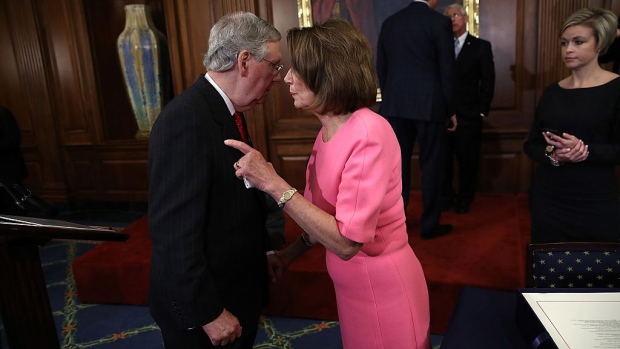Jul 14, 2020
America Can’t Wait for More Covid-19 Relief
, Bloomberg News

(Bloomberg Opinion) -- The next economic relief package from Congress was always going to be important for a strong recovery from the pandemic-induced recession. But the recent surge in Covid-19 deaths means it is now absolutely essential — and the calendar will be set by the coronavirus, not by Congress.
Congress has a limited window to act. It’s not quite now or never, but it is as about as close as it gets in Washington.
When the crisis first hit in the spring, some projections suggested that the worst of it would be over by midsummer. There was even some hope that by the end of June, Congress could turn its attention toward the recovery phase. For that reason many initial provisions, including loans under the Paycheck Protection Program and the boost to unemployment insurance, were scheduled to expire by the end of July.
As recently as a few weeks ago, that general thinking still seemed valid. Applications for PPP loans had fallen off, and the economy was adding jobs at a breakneck pace. The concern was how to turn a nascent recovery into a full-fledged rebound.
Now, however, there is the real possibility that economy will be looking at a second downturn and businesses will be facing another liquidity crunch. True, states may be hesitant to impose the same harsh lockdown measures they used last spring. But the effect on the economy could be just as severe.
Real-time measures of economic activity, such as restaurant reservations, were in free fall before the lockdowns began. Those same measures show that economic activity peaked in late June in hard-hit states such as Arizona and Texas. Overall, restaurant bookings have been flat in the U.S. for nearly a month — and that is before this latest uptick in deaths. As it becomes increasingly clear that this new round of infections is leading to a second wave of deaths, those trends are likely to intensify.
Now consider the congressional calendar. Lawmakers are expected to pass another round of relief in the next two weeks, then take a recess until after Labor Day. If there isn’t a second liquidity program for businesses, or a deal on extending the unemployment insurance boost, a second shock to the economy will be under way before Congress returns to Washington.
One way to navigate this extreme uncertainty is for Congress to focus on relief that doesn’t create any roadblocks to recovery. Rather than concentrate on forgiveness the way the original PPP did, for example, Congress could extend low-interest, long-term loans to any business, up to its 2019 revenues.
If the economic crisis reaches the levels of last spring, such a program would provide blanket liquidity and stem unnecessary layoffs. If, on the other hand, the U.S. gets lucky and deaths begin to decline again, then businesses would have the funds to reopen or even expand.
Redesigning the unemployment benefit so that it neither runs out in the middle of a downturn nor stifles a recovery will be harder. One possibility is to create a kind of “back to work” bonus that gives people a portion of their remaining unemployment bonus if they are rehired. (To make this work, the number of weeks workers can cash out would have to be capped at some multiple of the number of weeks they were on unemployment — otherwise, they will have an incentive to go on unemployment to get their back-to-work bonus.)
These are the kinds of details Congress should be discussing over the next few weeks. And whatever it does, it should recognize that there will be unintended consequences — and therefore a need to make adjustments. That’s yet another reason for Congress to act now instead of waiting until September.
This column does not necessarily reflect the opinion of the editorial board or Bloomberg LP and its owners.
Karl W. Smith, a former assistant professor of economics at the University of North Carolina and founder of the blog Modeled Behavior, is vice president for federal policy at the Tax Foundation.
©2020 Bloomberg L.P.






